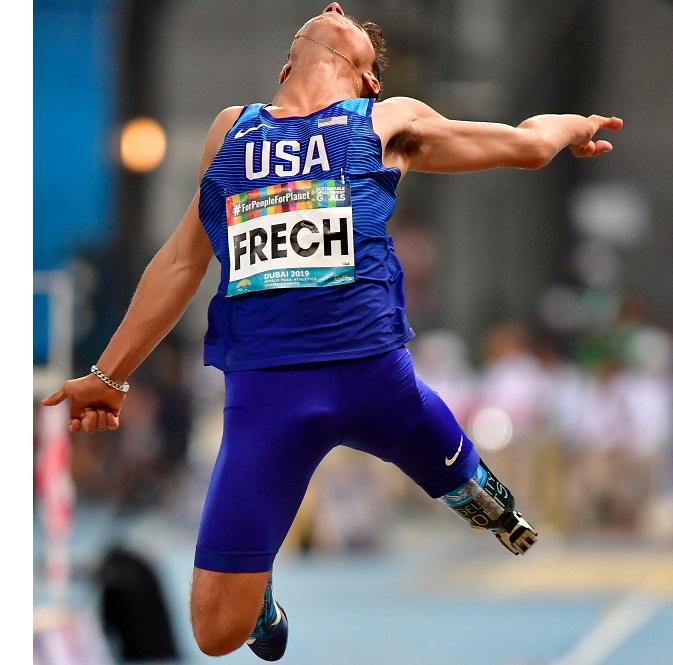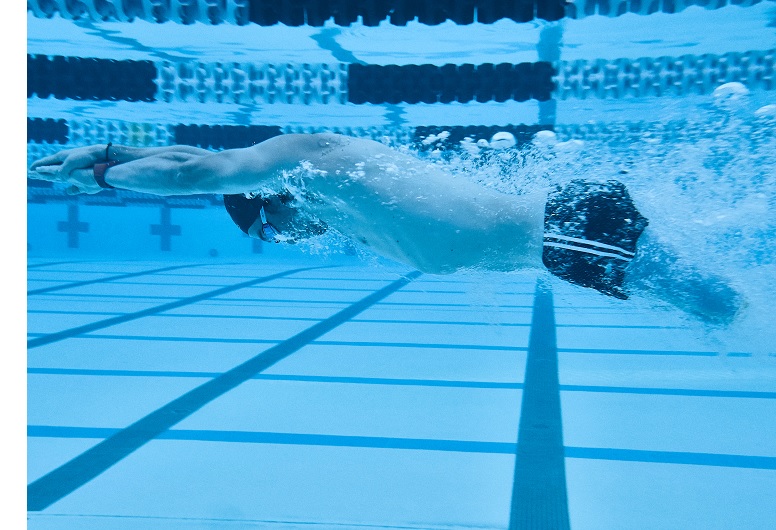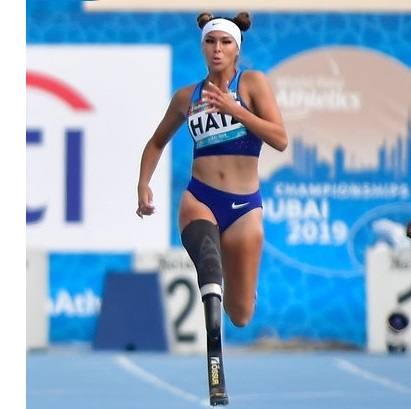After years of being starved for coverage of the Paralympics, adaptive sports aficionados now have the opposite problem: more coverage than anyone can keep up with. It’s the better dilemma to have, for sure; we’re not complaining. It just means we’ll all have to make choices about where to focus our attention.
After more than a year of talking with amputee athletes, we’ve gotten pretty invested in certain narratives, which are listed below. Use these as a starter list, then check out our Paralympics microsite for a complete list of every American amputee who’ll be competing in Tokyo. The Games begin a week from today!
Friendly Rivals

Paralympic teammates are unfailingly supportive of each other, but they’re often also in direct competition for the same medals. In one of the most intriguing internecine clashes between two US amputees, Jessica Long and Morgan Stickney will duke it out in the 400 meter freestyle (classification S8). Long, a bilateral amputee since infancy, is the most decorated Paralympian on the entire US team, with 23 career medals. Meanwhile, Stickney didn’t become an amputee until two years after the most recent Paralympics in Rio and has never competed on the global stage before. They have the two fastest times in the world this year in the 400, with Stickney about half a second faster than Long; no other swimmer in the world has come within 10 seconds of them. That event is scheduled for August 31. (Long and Stickney also will square off in the 100 meter freestyle, where both rank in the top five globally.)
Another intra-American contest to watch pits Jarryd Wallace against Jonathan Gore in the 100 meter and 200 meter sprints (classification T64). Wallace has the world’s fastest time in the 200 this year, and Gore ranks second; in the 100 meters they rank second and third in the world, with just .06 of a second separating them. The kicker? Gore probably wouldn’t be a Paralympian if not for Wallace. As a brand-new amputee a few years ago, Gore messaged Wallace on Instagram for a few pointers about breaking into para athletics. Wallace took him under his wing, and Gore debuted in competition earlier this year. The 100m medal race takes place August 30, and the 200m is one of the final events of the Paralympics, during the evening session of September 4.
Finally, we’re looking forward to the high-jump duel in classification T63 between world-record holder Sam Grewe and his protégé, 16-year-old Ezra Frech. They’ve recorded the two highest jumps in the world this year (1.9 and 1.8 meters respectively). At the National Trials two months ago, Grewe edged Frech by just a couple of inches. If you watched the Olympics, you know the high-jump competition ended in a tie, with Mutaz Essa Barshim (Qatar) and Gianmarco Tamberi sharing the gold medal. Could the same thing happen on the Para side? We’ll be tuned in for the finals on August 31.
Propelled by the Pandemic

The postponement of the Games from 2020 to 2021 inflicted various levels of stress and hardship on the competitors, who needed to adjust their training routines on the fly and while sustaining their mental focus for an extra year. But the delay worked decidedly in the favor of certain athletes. One of those is Rudy Garcia-Tolson, who retired after the 2016 Games and abandoned his training routine. He thought he was content with four Paralympic appearances (2004 through 2016) and five career medals (two gold), but when the Tokyo Games got postponed last spring, Garcia-Tolson unexpectedly got the itch to compete. He hustled to get into shape and qualified with a strong showing at the National Trials in June.
The one-year delay also worked in favor of Morgan Stickney, mentioned directly above in the Friendly Rivals section. She had her second leg amputation in October 2019, just 10 months before the originally scheduled date for the Tokyo Games. So when she got back into the pool in early 2020, her sights were set on the 2024 Paralympics in Paris. The extra year gave her time to build back up to full strength and get some international competition under her belt. She heads into the Games with a ton of momentum behind her.
Rookies of the Year

Nearly half of the athletes on the US Paralympic team are competing in their first Games. Among the amputee contingent, some key rookies to watch include Connor Stroud, a wheelchair tennis prodigy; swimmer Matthew Torres, a multiple medal winner at the Parapan Games in 2019; Noelle Lambert, who broke the US women’s record in the 100 meter sprint (classification T63) in 2019; Bailey Moody, a rising star on the women’s wheelchair basketball team; and track star Beatriz Hatz, who has medal aspirations in both the 100 meters and the long jump.
Away from the Spotlight
While track and swimming events tend to draw the most viewers, some of the most interesting amputee athletes will be participating in lesser-known sports. We’re excited to see how archery phenom Emma Rose Ravish fares in her first Games. She entered her first tournament just over two years ago and already has established herself as the best woman recurve archer in US history. Equestrian rider Beatrice de Lavallette, a first-time Paralympian, has a compelling backstory as the survivor of a terrorist attack in Brussels five years ago. Powerlifter Jake Schrom will be trying to win the first US medal in his event in two decades, while Blake Haxton will be skimming the surface in both rowing and paracanoe.
Repeat the Feat
Team USA won gold medals in both men’s and women’s wheelchair basketball at the Rio Games, the first time they’ve won both tournaments since the 1988 Games in Seoul. Each has a clean shot to return to the podium in Tokyo, but competition for the top spot will be stiff. Great Britain poses a legitimate threat to win on the men’s side, while the women will have to overcome the loss of stalwart Abby Dunkin, a team leader who chose to retire when the Paralympics were postponed to 2021.
Meanwhile, the women’s volleyball team will be defending its first-ever gold medal in a wide-open tournament that has no clear favorite. For the first time since 2008, they’ll be competing without former leader Kari Miller-Ortiz, who’s now part of NBC’s broadcast team.



